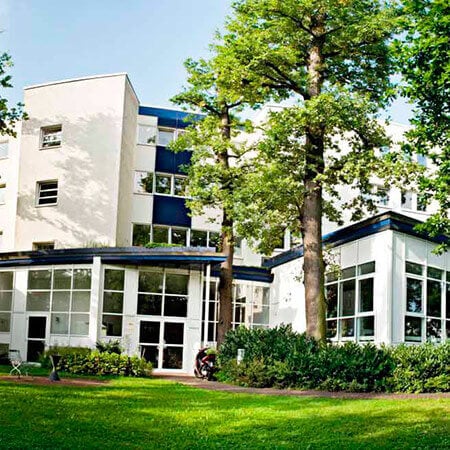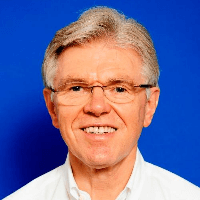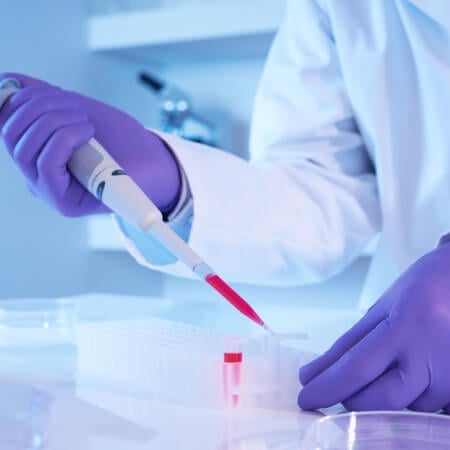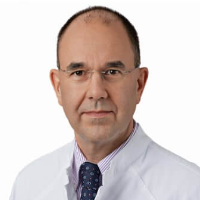Parkinsons Disease — Stem Cell Therapy for Parkinsons Disease: treatment in the Best Hospitals in the World
Treatment prices are regulated by national law of the corresponding countries, but can also include additional hospital coefficients. In order to receive the individual cost calculation, please send us the request and medical records.

Department of Alternative Medicine
The Department of Alternative Medicine specializes in the treatment of various types of cancer and chronic diseases using the methods of integrative medicine. The department belongs to few medical facilities in Germany, which offer individual treatment regimens using biological and integrative techniques. The department has state-of-the-art medical technologies, as well as a multidisciplinary team of competent specialists in various medical fields, including therapists, oncologists, gynecologists, urologists, orthopedists, nephrologists, surgeons, cardiologists and others. In addition, the department has a pleasant and friendly atmosphere.


Department of Regenerative Medicine
The Department of Regenerative Medicine offers all modern methods of stem cell therapy. The medical facility performs stem cell therapy based on the classical protocol, stem cell secretome (SCS) treatment, bone marrow concentrate (BMC) therapy, mesenchymal stem cell therapy, and PRP therapy that involves the injection of platelet-rich plasma. It should be noted that the medical facility has become a pioneer in Europe in the field of therapy with autologous mesenchymal stem cell secretome (SCS), the secretory products of stem cells. The department's medical team diagnoses and treats a wide range of diseases such as multiple sclerosis, rheumatoid arthritis, amyotrophic lateral sclerosis, Parkinson's disease, osteoarthrosis, knee injuries, spinal cord injuries, stroke, xerostomia, Lyme disease, urinary incontinence, and erectile dysfunction. The department also offers cell therapy for rejuvenation and hair loss treatment. The department has well-equipped diagnostic rooms and laboratories where biochemical, genetic, and imaging tests are performed. The specialists take time to study the patient's medical history and perform a comprehensive diagnosis, which helps to develop the most effective treatment regimen. The department's physicians work with innovative treatment methods that have passed all stages of clinical trials, proving their high efficiency and safety. The medical facility is the first cell therapy center in Europe to be certified according to German and European standards.

Stem cells (SCs) have been used in medicine since 1979. Scientists are discovering more and more types of stem cells and developing new ways to harvest and administer them, and the list of diseases treated with stem cells is constantly expanding. In neurology, significant advances have been made in cell therapy for stroke, cerebral palsy, multiple sclerosis, and amyotrophic lateral sclerosis. In recent years, more and more clinics have begun to treat Parkinson's disease with stem cells. So far, they are used in clinical trials and have not become part of standard treatment, but you can already undergo cell therapy abroad. Clinics that use this technique are presented on our website. Here you can find out the prices for treatment and make an appointment for treatment abroad for your preferred dates. The cost of stem cell therapy for Parkinson's disease is between 21,900 EUR and 22,850 EUR.
Content
- Problems with standard treatment for Parkinson's disease
- What types of SCs can be used for Parkinson's disease?
- How is stem cell therapy performed?
- Where to seek medical help for the treatment of Parkinson's disease?
Problems with standard treatment for Parkinson's disease
Parkinson's disease was described more than 200 years ago. During this time, significant progress has been made, but the condition still remains incurable.
Moreover, even slowing down the development of pathology is quite complex. Effective disease-modifying therapy has not yet been developed, although many drugs and techniques are undergoing clinical trials.
The standard treatment for Parkinson's disease is aimed at relieving symptoms and improving a person's quality of life. Unfortunately, over time, the pathology continues to progress, the effect of drugs decreases, and in the case of long-term treatment, they may cause severe side effects. Therefore, patients have to look for other options for the treatment of Parkinson's disease, and one of the good options is stem cell therapy.
What types of SCs can be used for Parkinson's disease?
Cell therapy is considered one of the most promising treatment methods for Parkinson's disease. It not only relieves the symptoms but also affects the clinical course of the pathology.
Various types of SCs can be used to treat Parkinson's disease with stem cells: dopamine-secreting cells, embryonic SCs, induced pluripotent, hematopoietic, and mesenchymal SCs from the bone marrow, and fetal mesencephalic cells have been used in clinical trials with varying degrees of success. The most promising for implementation in clinical practice is the use of mesenchymal SCs because:
- they are easy to collect;
- they can be administered in any way, and the SCs will find their way to the damaged areas of the brain;
- mesenchymal SCs not only mature into nerve cells and replace defects but also produce growth factors that stimulate regeneration;
- the use of mesenchymal SCs is not accompanied by ethical problems, in contrast to the cells of the fetus or embryo.
How is stem cell therapy performed?
The most common stem cell therapy regimen for Parkinson's disease involves the following:
- harvesting SCs from the bone marrow (from the middle third of the ilium);
- administration of the collected stem cells intranasally (in the nose).
Although SCs can also be injected intravenously, when administered intranasally, they reach the brain already on the first day and remain in the pathological focus in a significant amount for more than 3 weeks.
The main effect of SCs is neurotrophic. They secrete growth factors, normalize metabolic processes in neurons, and slow down their destruction. Mesenchymal SCs maintain the normal structure of both individual brain cells and the neural network as a whole. They also have an anti-inflammatory and immunoregulatory effect, protecting tissues from damage by immune factors as well as improving the function of surviving neurons.
Where to seek medical help for the treatment of Parkinson's disease?
Only a few countries in the world carry out cell therapy for Parkinson's disease. You can undergo your treatment abroad to get medical care. You can find out the cost of treatment and make an appointment for your treatment abroad through the Booking Health service. Our website presents the world's best clinics that use advanced techniques and achieve excellent results in the treatment of even the most severe neurological diseases.
When you make your treatment appointment through Booking Health, you can expect the cost of treatment to be lower as compared to contacting the hospital directly. Prices for treatment will be lower due to the absence of taxes for foreign patients.
The Booking Health specialists will help you organize your trip abroad. We will select the best clinic for you, make an appointment for your preferred dates, book a hotel room and airline tickets, and provide you with interpreting services. We will also meet you at an airport abroad and take you to a hospital or hotel by car.
Authors:
The article was edited by medical experts, board-certified doctors Dr. Nadezhda Ivanisova and Dr. Vadim Zhiliuk. For the treatment of the conditions referred to in the article, you must consult a doctor; the information in the article is not intended for self-medication!
Sources:

